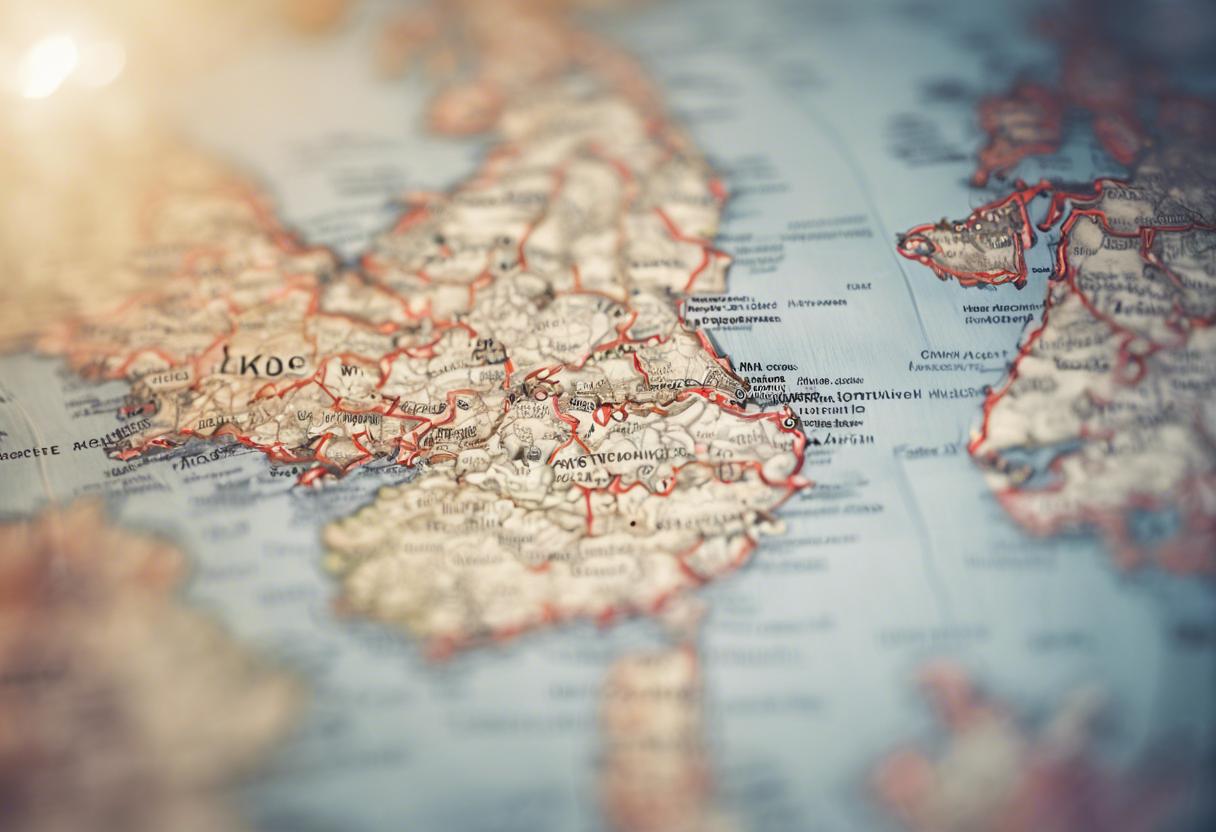Alex Salmond, a prominent figure in Scottish politics, was born on the 31st of December, 1954, and passed away suddenly on the 12th of October, 2024, at the age of 69. He almost led to the division of the United Kingdom with the independence referendum of 2014 that stood at 55.3% for and 44.7% against. The agreement of David Cameron, the then Prime Minister, to allow a Scottish independence referendum was the culmination of Salmond’s notable political career, which spans leading the Scottish National Party to its governing position at Holyrood.
Interestingly, Salmond was better suited for the heated dynamics of Westminster debates over the more regulated setting in Holyrood. His oratory and debating skills always shone brighter on the grander stage. However, after losing his Westminster seat in 2017, Salmond’s life was marred by a string of complications emanating from accusations by the SNP and Scottish government of past inappropriate sexual behaviour.
These accusations, despite Salmond being acquitted on all counts, had left an indelible mark on his reputation. There is still ongoing dispute over the origin of these accusations, with Salmond seeking legal redress against specific individuals, including his successor Nicola Sturgeon, and the Scottish government. Fergus Ewing, ex-minister of Scotland and an SNP luminary, called the pursuit of Salmond “the scandal of our age”.
Born in Linlithgow, West Lothian, to Robert and Mary Salmond, both civil servants, Alex Salmond showed early promise in debate whilst studying at St Andrew’s University. He helmed the Federation of Student Nationalists and graduated in 1978 with honours in economics. His entry into the professional world began with his role in the former Scottish Office as an agricultural economist. However, Salmond’s political involvement was swift, as the SNP found itself in a crisis after siding with Margaret Thatcher and causing the downfall of the Labour government in the 1979 general election. Alongside others with left-leaning ideologies, Salmond was part of the formation of the 79 Group, promoting a radical agenda aimed at the working class.
Initiating with internal discord, Salmond – who had been working for the Royal Bank of Scotland since 1980 – faced a brief expulsion in 1982. Nonetheless, the Scottish National Party (SNP) saw this incident as a rejuvenation process, emerging stronger thereafter. Moving on, in 1985, Salmond took on the role of vice-convener for the SNP, shouldering the responsibilities of publicity.
The later general election that hit Scotland in 1987 was largely influenced by the poll tax. This election marked a victory for the SNP in three constituencies, one of them being Banff and Buchan where Salmond defeated the standing Tory, Albert McQuarrie. In the process, he also secured the position of the party’s deputy leader.
1990 saw Salmond ascend to the leadership of the SNP, a position that helped push the party to greater prominence and ushered in an era of internal progression. Salmond’s disinterest in opposition in Holyrood was confirmed when he stepped down as the SNP leader in 2000, whilst remaining a part of Westminster. Following him, John Swinney lead the party, though his term was less successful. Swinney’s resignation in 2004 paved the way for Salmond to reenter the political competition, a race that Sturgeon was expected to win. However, she ended up taking on the role of Salmond’s deputy.
Come 2007, with Salmond at the helm, the SNP emerged as the largest party, albeit just by one seat. Salmond, now notably proficient in dealmaking, coaxed the Scottish Tories into supporting him, thus justly securing a majority to constitute a government. During his term in office, the SNP maintained a stable government, with Salmond as a central figure. He was recognised for his abilities in effective communication, relationship building with Scottish businesses and his innovative ideas.
Fast forward to 2011, and with Labour still scattered, Salmond accomplished something the electoral framework wasn’t meant to achieve – a single-party absolute majority at Holyrood, with the SNP bagging 69 out of 129 seats. The overwhelming result of this election convinced Cameron to concede to Salmond’s request for a referendum.
As the lengthy campaign for the 2014 referendum progressed, there was a substantial surge in the support for independence. Opinion polls even suggested that the ‘yes’ vote had the upper hand. However, the fatal flaw in their bid was their weak economic argument on independence.
Soon after the referendum, Salmond made the decision to step down from his positions of first minister and SNP leader – a move he would later profoundly regret. The subsequent leader to take his place was his protegee and deputy, Sturgeon, who rode on a wave of nationalism as the 45 per cent pro-independence voters held steady.
In the aftermath of the 2015 general elections, Alex Salmond resumed his political career in Westminster, representing the Gordon constituency. However, he was one of the 50 MPs from the SNP, playing a rather inconspicuous role. During the 2017 elections, the most sizable Tory swing in the whole of the UK unseated him. This pushed him to the periphery of both Scottish and UK politics, where he took up a poorly informed position as a weekly programme presenter on Russia Today.
In an unexpected turn of events in January 2019, Salmond faced 14 charges by the police, although one was subsequently dropped. He consistently asserted his innocence, a claim that was upheld by the high court in Edinburgh in March 2020 on all counts. However, the animosity this episode generated and the ongoing questions about the legal proceedings initiated by the Scottish government remain unresolved.
Salmond’s role in both Scottish and UK politics over numerous years is undeniably remarkable. He incited extreme loyalty and hostile reactions, but for many Scots, Salmond was an incredibly skilled, intelligent, and dedicated politician. He met his wife, Moira McGlashan, while both were civil servants in the Scottish Office, and they married in 1981. She outlives him.

